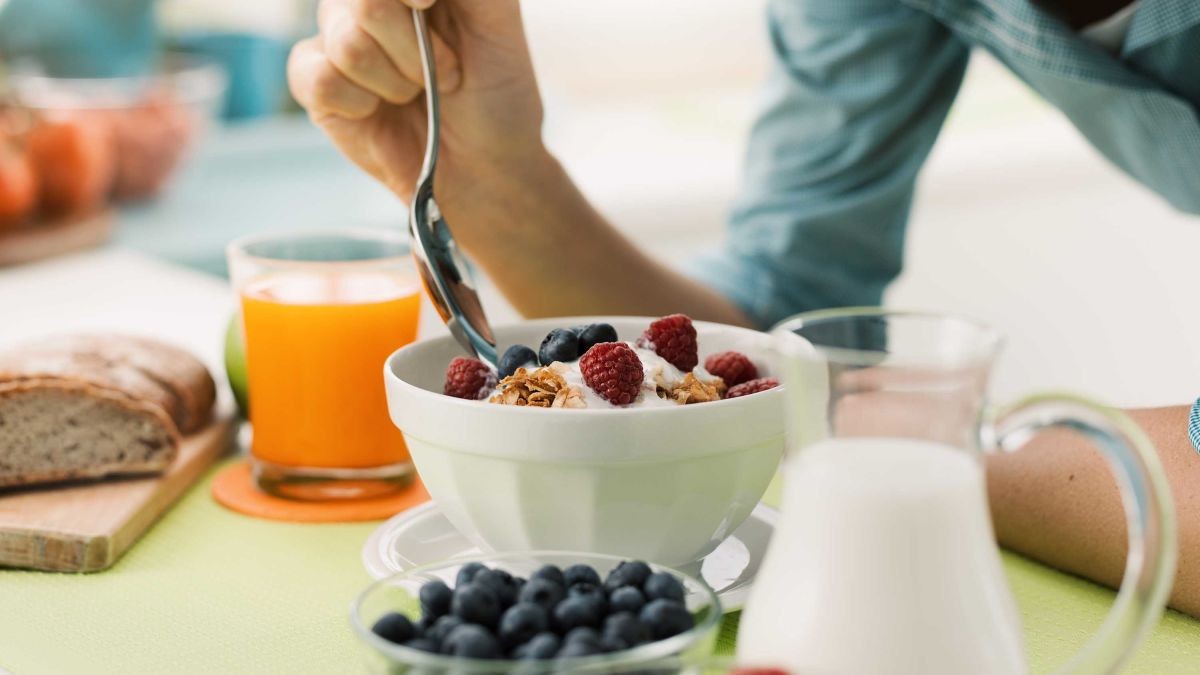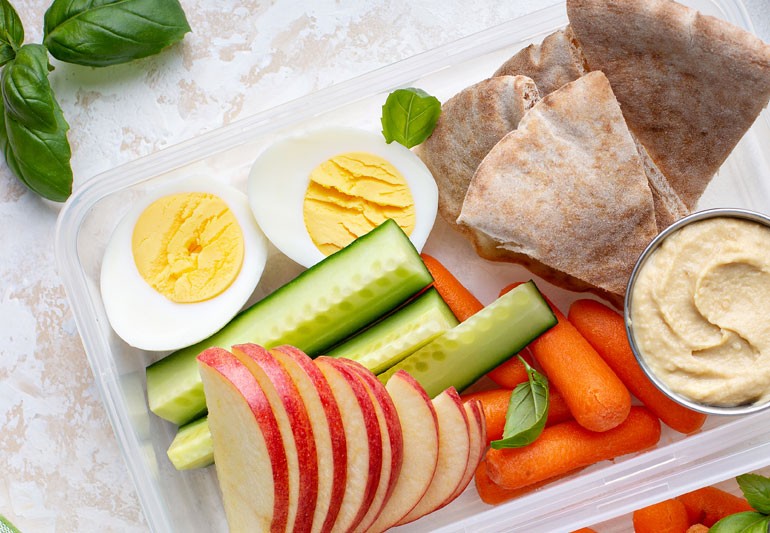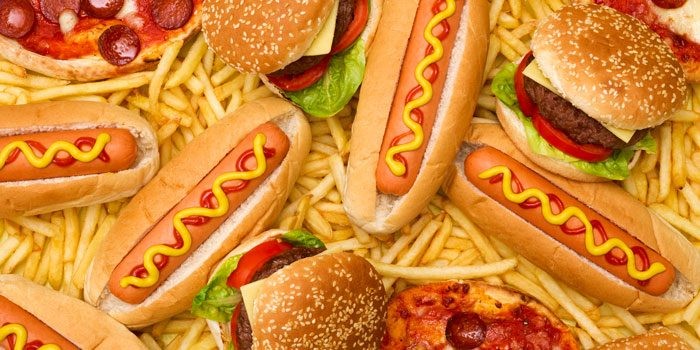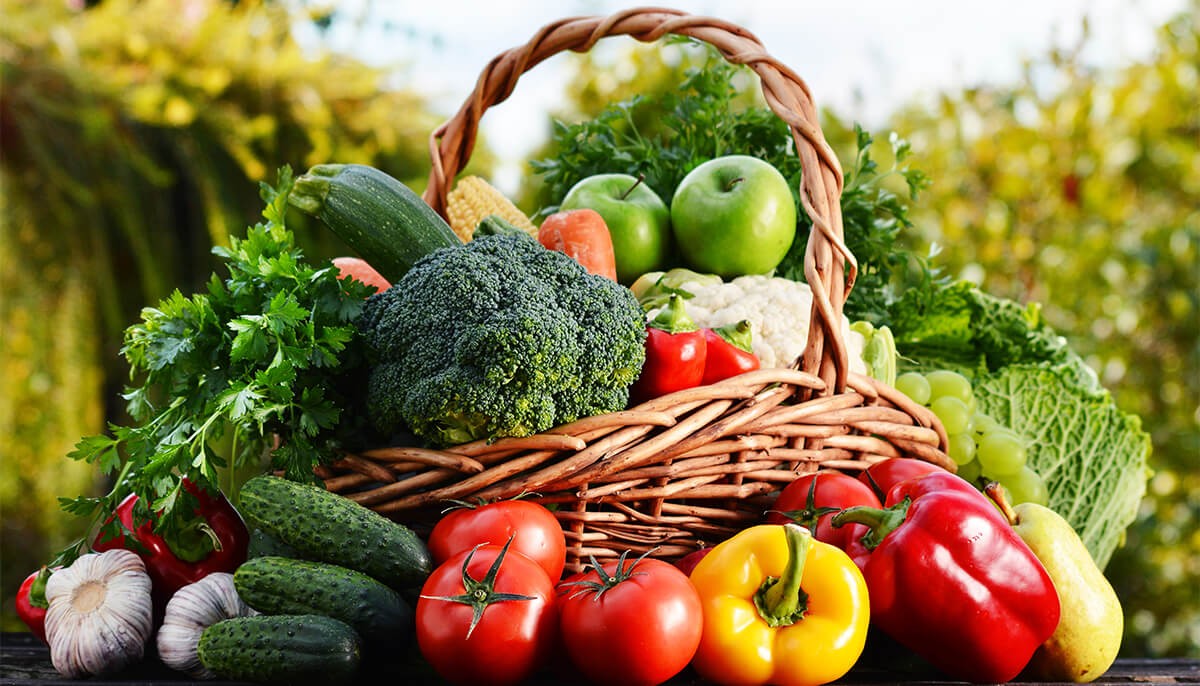Eating Healthy: 10 Tips For Healthier Life
Eating healthily is all about balance. You can have a few treats every now and then, or a big meal, but it is important to remember that the majority of our diet should be made up of balanced, nutritious everyday foods. It’s easy to get confused when it comes to health and nutrition. Even qualified experts often seem to hold opposing opinions, which can make it difficult to figure out what you should actually be doing to optimize your health.
1. Eat breakfast
 |
| Photo: iStock |
Breakfast is often called ‘the most important meal of the day’, and for good reason. As the name suggests, breakfast breaks the overnight fasting period. It replenishes your supply of glucose to boost your energy levels and alertness, while also providing other essential nutrients required for good health.
Many studies have shown the health benefits of eating breakfast. It improves your energy levels and ability to concentrate in the short term, and can help with better weight management, reduced risk of type 2 diabetes and heart disease in the long term.
Despite the benefits of breakfast for your health and wellbeing, many people often skip it, for a variety of reasons. The good news is there are plenty of ways to make it easier to fit breakfast into your day.
Energy
The body’s energy source is glucose. Glucose is broken down and absorbed from the carbohydrates you eat. The body stores most of its energy as fat. But your body also stores some glucose as glycogen, most of it in your liver, with smaller amounts in your muscles.
Eating breakfast boosts your energy levels and restores your glycogen levels ready to keep your metabolism up for the day.
Skipping breakfast may seem like a good way to reduce overall energy intake. But research shows that even with a higher intake of energy, breakfast eaters tend to be more physically active in the morning than those who don’t eat until later in the day.
Essential vitamins, minerals and nutrients
Breakfast foods are rich in key nutrients such as folate, calcium, iron, B vitamins and fibre. Breakfast provides a lot of your day’s total nutrient intake. In fact, people who eat breakfast are more likely to meet their recommended daily intakes of vitamins and minerals than people who don’t.
Breakfast helps you control your weight
People who regularly eat breakfast are less likely to be overweight or obese. Research is ongoing as to why this is the case. It is thought that eating breakfast may help you control your weight because:
it prevents large fluctuations in your blood glucose levels, helping you to control your appetite
breakfast fills you up before you become really hungry, so you’re less likely to just grab whatever foods are nearby when hunger really strikes (for example high energy, high fat foods with added sugars or salt).
2. Limit sugary drinks
 |
| Photo: The BDA |
Sugary drinks like sodas, fruit juices, and sweetened teas are the primary source of added sugar in the American diet.
Unfortunately, findings from several studies point to sugar-sweetened beverages increasing risk of heart disease and type 2 diabetes, even in people who are not carrying excess body fat.
Sugar-sweetened beverages are also uniquely harmful for children, as they can contribute not only to obesity in children but also to conditions that usually do not develop until adulthood, like type 2 diabetes, high blood pressure, and non-alcoholic fatty liver disease.
Healthier alternatives include:
water
unsweetened teas
sparkling water
coffee
3. Choose nutritious calories
 |
| Photo: Cleveland Clinic Health |
A calorie is a unit of energy. Think of it as the fuel your body needs to run, just as your car needs gas. The three different macronutrients your body requires – protein, fat and carbohydrates – each provide a different number of calories per gram weight. Protein and carbohydrates supply 4 calories per gram, while fat contains 9 calories per gram, making it much more calorie-dense.
Nutrient-dense foods are low in calories and high in nutrient content. In general, these are “real” foods such as fresh fruits, vegetables, meats, eggs, seeds, beans and legumes. Nutrient density refers to the proportion of nutrients in a food relative to its caloric content. For example, broccoli is a nutrient-dense food, containing just 15 calories per 1/2-cup serving. At the same time, it is rich in fiber; vitamins A, K and C; and the minerals potassium, magnesium and calcium, among others. Broccoli is a good choice for weight-loss plans, and it also supports overall health.
Federal food guidelines are based on 2,000-calorie-a-day diets, but you may need to eat more or less depending on your circumstances. Many websites feature BMR calculators, but you can get a rough estimate by taking your weight times 10 if you are a woman and by 11 if you are a man. Then factor in the amount of physical activity you perform daily to determine your daily caloric needs. If you are sedentary, multiply your BMR by 1.2; lightly active, by 1.375; moderately active, by 1.55; very active, by 1.725; and extra active, by 1.9. For example, to maintain her current weight, a woman who weighs 120 pounds and is moderately active would need roughly 1,860 calories a day. Choosing nutritious calories promotes better health and satiety.
4. Avoid ultra-processed foods
 |
| Photo: BBC Good Food |
Ultra-processed foods are foods containing ingredients that are significantly modified from their original form. They often contain additives like added sugar, highly refined oil, salt, preservatives, artificial sweeteners, colors, and flavors as well.
Examples include:
- snack cakes
- fast food
- frozen meals
- canned foods
- chips
Ultra-processed foods are highly palatable, meaning they are easily overeaten, and activate reward-related regions in the brain, which can lead to excess calorie consumption and weight gain. Studies show that diets high in ultra-processed food can contribute to obesity, type 2 diabetes, heart disease, and other chronic conditions.
In addition to low quality ingredients like inflammatory fats, added sugar, and refined grains, they’re usually low in fiber, protein, and micronutrients. Thus, they provide mostly empty calories.
5. Get enough sleep
 |
| Photo: iStock |
Sleep is an essential function that allows your body and mind to recharge, leaving you refreshed and alert when you wake up. Healthy sleep also helps the body remain healthy and stave off diseases. Without enough sleep, the brain cannot function properly. This can impair your abilities to concentrate, think clearly, and process memories.
Most adults require between seven and nine hours3 of nightly sleep. Children and teenagers need substantially more sleep, particularly if they are younger than five years of age. Work schedules, day-to-day stressors, a disruptive bedroom environment, and medical conditions can all prevent us from receiving enough sleep. A healthy diet and positive lifestyle habits can help ensure an adequate amount of sleep each night – but for some, chronic lack of sleep may be the first sign of a sleep disorder.
Poor sleep can drive insulin resistance, can disrupt your appetite hormones, and reduce your physical and mental performance
What’s more, poor sleep is one of the strongest individual risk factors for weight gain and obesity. People who do not get enough sleep tend to make food choices that are higher in fat, sugar, and calories, potentially leading to unwanted weight gain.
6. Stay hydrated
Drinking enough water each day is crucial for many reasons: to regulate body temperature, keep joints lubricated, prevent infections, deliver nutrients to cells, and keep organs functioning properly. Being well-hydrated also improves sleep quality, cognition, and mood.
Experts recommend drinking roughly 11 cups of water per day for the average woman and 16 for men. And not all of those cups have to come from plain water; for example, some can come from water flavored with fruit or vegetables (lemons, berries, or orange or cucumber slices), or from coffee or tea.
But it’s best to stay away from sugar-sweetened beverages when trying to stay hydrated, says Walter Willett, professor of epidemiology and nutrition at Harvard T.H. Chan School of Public Health. In a September 28, 2017 CNN article, Willett said that Americans are “conditioned to expect high levels of sweetness in everything…. You might say we are malhydrated, because we drink so much soda and fruit juice and other sugar-sweetened beverages, and by that I mean we drink beverages that harm our health. Even energy drinks and vitamin waters, most are loaded with sugar and not worth the use.”
7. Eat plenty of fruits and vegetables
 |
| Photo: Getty Images |
Vegetables and fruits are loaded with prebiotic fiber, vitamins, minerals, and antioxidants, many of which have potent health effects.
Studies show that people who eat more vegetables and fruits tend to live longer and have a lower risk for heart disease, obesity, and other illnesses.
 | Great Habits For You To Enjoy A Healthy, Happy Summer Summer is when you spend your time enjoying different outdoor activities, going on vacations, and relaxing. These habits will keep you healthy and happy during ... |
 | The Best Tips For A Low-Budget Skincare Skincare does not have to be expensive, since there are many ways to keep your skin healthy with natural remedies and methods. |
 | Helpful Tips To Stay Healthy During A Trip Travelling is fun and enjoyable, but it can also be stressful at times and can mess up your daily habits. But it is not impossible ... |
Recommended
 Handbook
Handbook
Vietnam Moves Up 8 Places In World Happiness Index
 Handbook
Handbook
Travelling Vietnam Through French Artist's Children Book
 Multimedia
Multimedia
Vietnamese Turmeric Fish among Best Asian Dishes: TasteAtlas
 Handbook
Handbook
From Lost to Found: German Tourist Thanks Vietnamese Police for Returning His Bag
Popular article
 Handbook
Handbook
Prediction and Resolution for the Disasters of Humanity
 Handbook
Handbook
16 French Films To Be Shown For Free During Tet Holiday In Vietnam
 Handbook
Handbook
Unique Cultural and Religious Activities to Welcome Year of the Snake
 Handbook
Handbook







